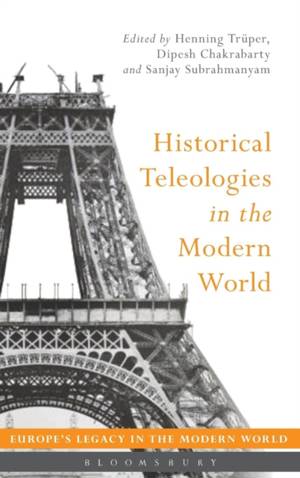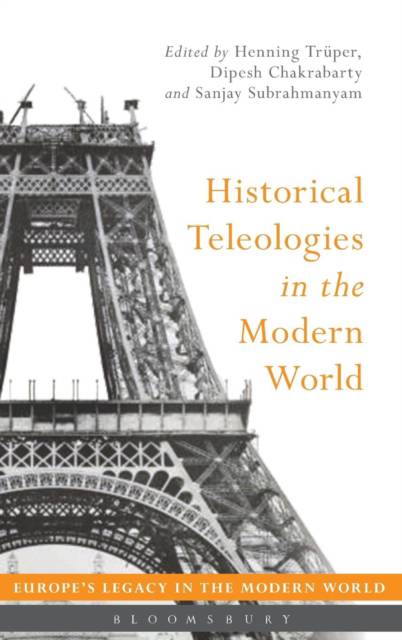
- Afhalen na 1 uur in een winkel met voorraad
- Gratis thuislevering in België vanaf € 30
- Ruim aanbod met 7 miljoen producten
- Afhalen na 1 uur in een winkel met voorraad
- Gratis thuislevering in België vanaf € 30
- Ruim aanbod met 7 miljoen producten
Zoeken
Historical Teleologies in the Modern World
€ 296,95
+ 593 punten
Omschrijving
Historical Teleologies in the Modern World tracks the fragmentation and proliferation of teleological understandings of history - the notion that history had to be explained as a goal-directed process - in Europe and beyond throughout the 19th and into the 20th century. Historical teleologies have profoundly informed a variety of other disciplines, including modern philosophy, natural history, literature, humanitarian and religious philanthropism, the political thought and practice of revolution, emancipation, imperialism, colonialism and anti-colonialism, the conceptualization of universal humankind, and the understanding of modernity in general.
By exploring the extension and plurality of historical teleology, the essays in this volume revise the history of historicity in the modern period. Historical Teleologies in the Modern World casts doubt on the idea that a single, if powerful, conception of time could function as the unifying principle of all modern historicity, instead pursuing an investigation of the plurality of modern historicities and its underlying structures. By bringing together Western and non-Western histories, this book provides the first extended treatment of the idea of historical teleology. It will be of great value to students and scholars of modern global and intellectual history.
By exploring the extension and plurality of historical teleology, the essays in this volume revise the history of historicity in the modern period. Historical Teleologies in the Modern World casts doubt on the idea that a single, if powerful, conception of time could function as the unifying principle of all modern historicity, instead pursuing an investigation of the plurality of modern historicities and its underlying structures. By bringing together Western and non-Western histories, this book provides the first extended treatment of the idea of historical teleology. It will be of great value to students and scholars of modern global and intellectual history.
Specificaties
Betrokkenen
- Uitgeverij:
Inhoud
- Aantal bladzijden:
- 384
- Taal:
- Engels
- Reeks:
Eigenschappen
- Productcode (EAN):
- 9781474221061
- Verschijningsdatum:
- 5/11/2015
- Uitvoering:
- Hardcover
- Formaat:
- Genaaid
- Afmetingen:
- 156 mm x 234 mm
- Gewicht:
- 716 g

Alleen bij Standaard Boekhandel
+ 593 punten op je klantenkaart van Standaard Boekhandel
Beoordelingen
We publiceren alleen reviews die voldoen aan de voorwaarden voor reviews. Bekijk onze voorwaarden voor reviews.







